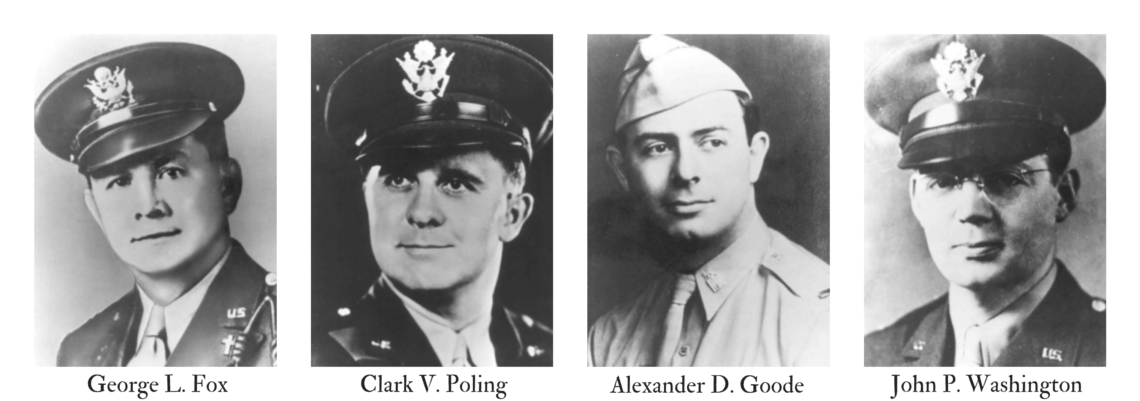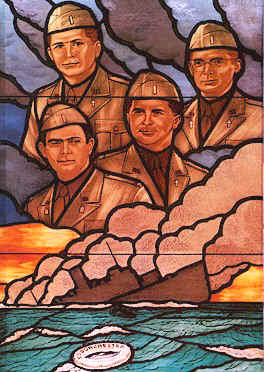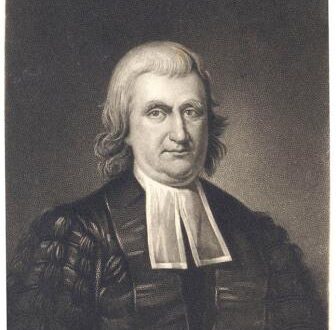
The Four Chaplains
In early 1943, during World War II, the US troopship SS Dorchester was underway to Greenland. On board were four United States Army Chaplains, each holding to a separate creed: George L. Fox had been ordained in the Methodist church, Clark V. Poling in the Reformed Church in America; Alexander D. Goode was a Jewish rabbi, John P. Washington a Catholic priest. They put their differences aside, however, on the fateful morning of February 3rd, when the Dorchester was torpedoed by a German U-boat. Amidst chaos and confusion, the chaplains calmed and encouraged the other men on board, assisted the injured, and helped whom they could into life boats. In time it became apparent that there were not enough life vests for all 902 men on board, so the four chaplains selflessly offered up their own. The fact that they were willing to do so for any man, regardless of his religious profession, greatly impacted survivor John Ladd, who said afterwards, “It was the finest thing I have seen or hope to see this side of heaven.” When there was no more the chaplains could do to help, they linked arms; singing and praying, Fox, Goode, Poling, and Washington met their death with 668 other men in the frigid waters of the North Atlantic.
Other survivors later recalled:
“I could hear men crying, pleading, praying. I could also hear the chaplains preaching courage. Their voices were the only thing that kept me going.” – William B. Bednar
“As I swam away from the ship, I looked back. The flares had lighted everything. The bow came up high and she slid under. The last thing I saw, the Four Chaplains were up there praying for the safety of the men. They had done everything they could. I did not see them again. They themselves did not have a chance without their life jackets.” – Grady Clark

*Sources for photographs of the Chaplains: Fox, Poling, Goode, Washington;
survivor accounts taken from Wikipedia and the Four Chaplains Memorial Foundation;
stained glass window at the U.S. Pentagon (source)




